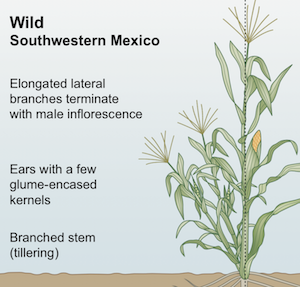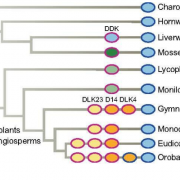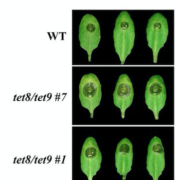Insight: The impact of domestication and crop improvement on arbuscular mycorrhizal symbiosis in cereals (New Phytol)
 Cereals, such as rice, maize, wheat and sorghum are the nutritional base for many human societies, accounting for over 50% of the global caloric intake. Therefore, sustainability of (cereal) agriculture and quality of the cereals consumed is a great concern. This has led to an increasing interest into the potential benefit of arbuscular mycorrhizal (AM) symbiosis in cereals where “it has been hypothesized that the shift from the wild to cultivation, and … intensive breeding for high-input farming systems, has reduced the capacity of the major cereal crops to gain full benefit from AM interactions”. This recent review by Sawers et al. compiles information on how recruitment of plant metabolites and hormones act as signals and regulators in AM symbiosis and may be therefore regarded as targets of plant breeding, also focusing on the variations in host response to AM symbiosis. (Summary by Isabel Mendoza) New Phytol. 10.1111/nph.15152
Cereals, such as rice, maize, wheat and sorghum are the nutritional base for many human societies, accounting for over 50% of the global caloric intake. Therefore, sustainability of (cereal) agriculture and quality of the cereals consumed is a great concern. This has led to an increasing interest into the potential benefit of arbuscular mycorrhizal (AM) symbiosis in cereals where “it has been hypothesized that the shift from the wild to cultivation, and … intensive breeding for high-input farming systems, has reduced the capacity of the major cereal crops to gain full benefit from AM interactions”. This recent review by Sawers et al. compiles information on how recruitment of plant metabolites and hormones act as signals and regulators in AM symbiosis and may be therefore regarded as targets of plant breeding, also focusing on the variations in host response to AM symbiosis. (Summary by Isabel Mendoza) New Phytol. 10.1111/nph.15152









